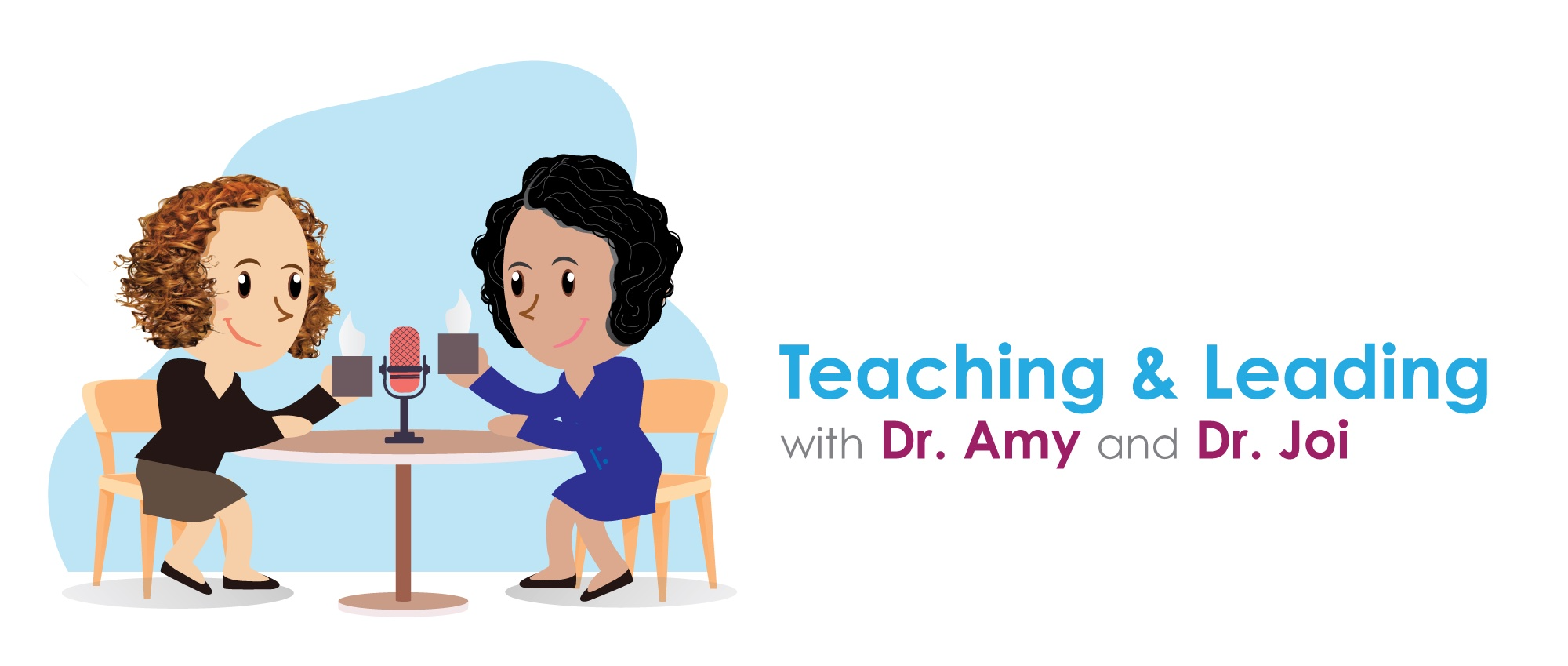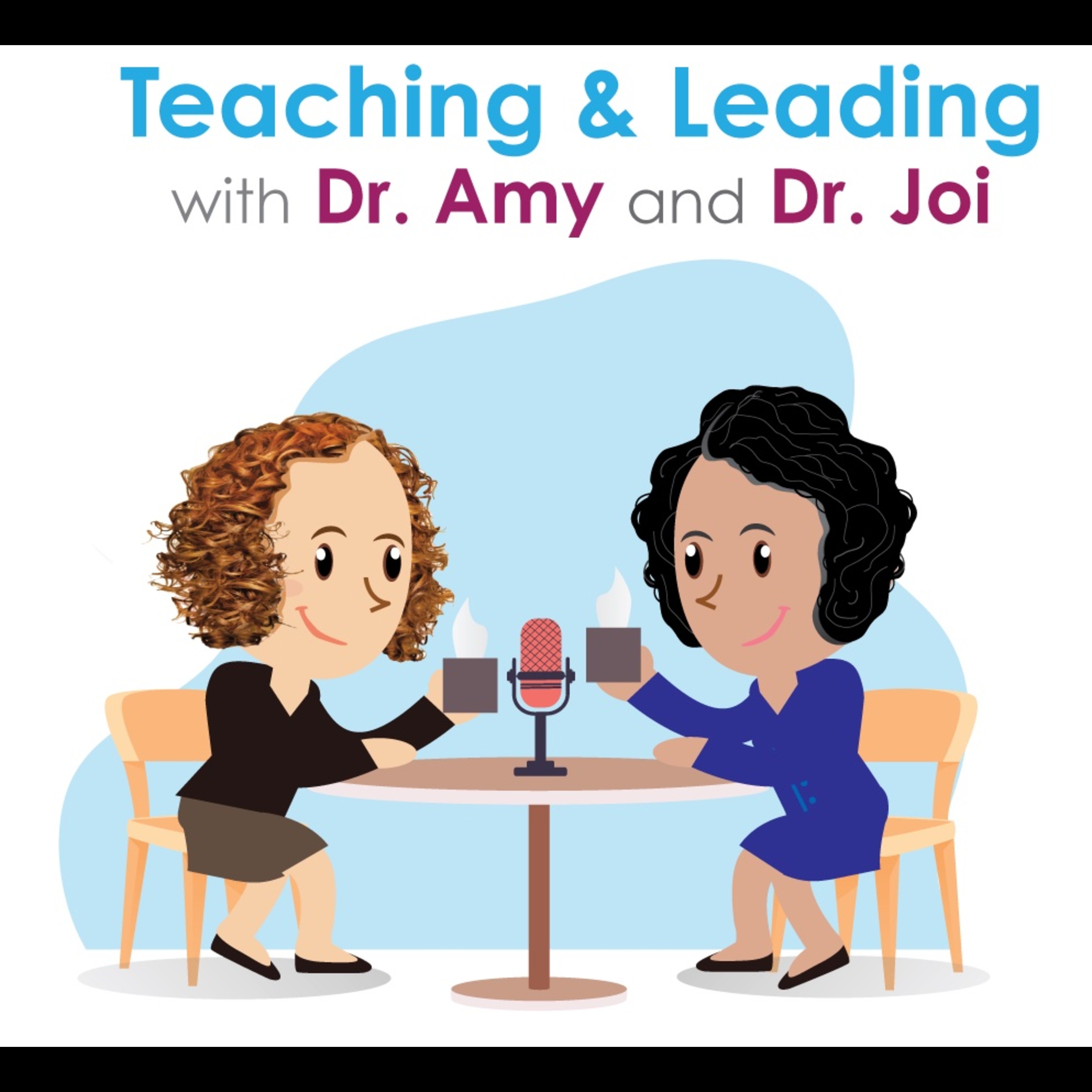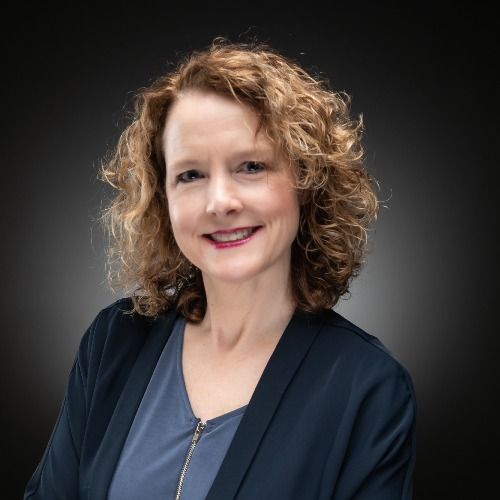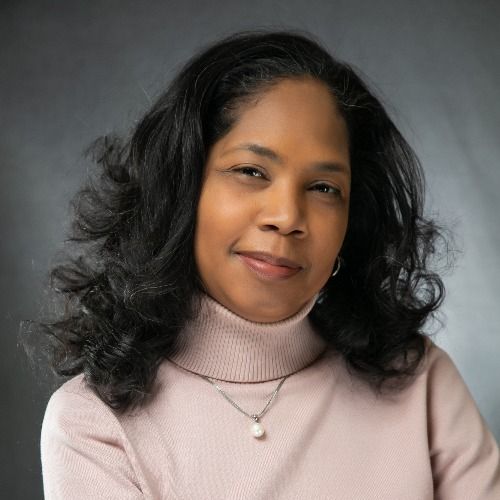Leading Where You Are as Educators with Dr. Amy and Dr. Joi
In this episode, Drs. Joi Patterson and Amy Vujaklija discuss the start of their 5th season of the "Teaching and Leading" podcast. They reflect on their past conversations about why educators leave the profession and why they stay, and how that has led them to focus this season on the theme of "leading where you are" as educators. The hosts emphasize the importance of developing leadership qualities and capitalizing on opportunities to lead, regardless of one's formal position. They also highlight the value of sharing knowledge and experiences through platforms like podcasting as a way of leading and making an impact.
Transcript
Joi and Amy Season 5
,:SUMMARY KEYWORDS
educators, talk, leading, amy, capitalize, conversation, leadership, students, leader, work, chief diversity officer, colleague, season, position, governor, sharing, thought, podcast, joi, dr
SPEAKERS
Amy Vujaklija, Joi Patterson
Joi Patterson:In this new season, talk about leading where you are, and as educators, we have that ability to be leaders.
Amy Vujaklija:Welcome to our podcast, teaching and leading with Dr Amy and Dr Joi. I am Dr Amy vujaklija, Director of educator preparation,
Joi Patterson:and I am Dr Joi Patterson, Chief Diversity Officer. Our podcast addresses issues through the lens of Diversity Equity and Inclusion, along with solutions for us to grow as educators.
Amy Vujaklija:So join us on our journey to become better teachers and leaders. So let's get into it. Hello. Dr, Joi,
Joi Patterson:hello. Dr, Amy, how are you?
Amy Vujaklija:Well? I am great because we are starting season five. I just want to talk about where we've been, what we've accomplished, and where we're going.
Joi Patterson:Well, first of all, I can't believe we're starting season five. We started this at the onset of a covid 19 pandemic. That's going to mean something years down the road. It's still relevant. I'm still passionate about it, and I know that we are very, very busy, but I think it's still impactful. What about what do you think?
Amy Vujaklija:I think that every time I have a conversation with a guest, with leaders students, I learned something. I've always learned more from my students than I think they learned from me. Yep, and that's been really my goal is to disseminate what I've been learning. I think maybe even in our first episode, we talked about that, how we just soak up information, we just don't know what to do with it. And so this is our way of contributing, of sharing.
Joi Patterson:And so I do have some questions for you, because this has been a very long road, and I'm probably just thinking back about a few years, not five years, and I just want to hear some things that resonate with you, because oftentimes we kind of get fixated on a focus for the year, and we're in great tune with that. I don't know what happens, but we're always in great tune. And so it wasn't long ago that we had to focus on why educators leave. So you remember that, so tell me, just from your perspective, what was so significant about that, that you wanted to, that you gravitated to that. And we spent almost an entire season talking about why educators leave
Amy Vujaklija:because we we keep seeing it, and it actually is really disheartening, because so many people work so hard. They have multiple jobs, they go through a program, they go through student teaching, and then they get into the classroom, and it's not the students, it's not their colleagues. Those are not the reasons that educators were leaving. They're leaving because they're they're just so stressed and anxious and burned out.
Joi Patterson:Yeah, I felt like we were spending so much time defending being educators, right? We were talking about pay, and then we were trying to defend, yes, high school teachers get paid a certain amount. It's a nice salary. So we were, we were defending the profession so much because we saw what was happening, and then we kind of changed our focus, right? So on why educators stay.
Amy Vujaklija:I think whenever we were talking about why educators leave, we could really spiral down that really fast. Yeah, it's such a deficit perspective. And we even with our first conference, we were talking about recruitment and and we got to replace these educators who are leaving. And then we, we did. We flipped that, because why educators stay is that's what we want to build upon. We talk to our candidates and our students about that growth mindset and capitalizing and building on the positive perspectives. And so when we look at why educators stay that is just adding to the conversation. And really just real quickly, some of the themes that came out of just a general survey we sent out into in the Illinois areas, especially the Southland area, capitalized, I mean, people talked about their colleagues, the bond imparting their knowledge and their love for students, those were the top ranked reasons why the educators stay in. The support from administrators. That would be a reason why they continued to stay but it is still disheartening that a lot of people couldn't answer the question of whether they were going to retire from education or not. So I don't think our conversation is over, but I think it has helped propel us into the next conversation, the next theme, if you will. I'm excited about leadership. I'm excited about how people see themselves as leaders. And I think people get confused about what the title of leader means versus the qualities of a leader.
Joi Patterson:So let's talk about that. So I know we're going to, in our in this new season, talk about leading where you are, and as educators, we have that ability to be leaders. And I want to talk about you for a moment too. I've supervised a lot of people in my career, and I've often had people come up to me who aspire to be in a certain position, and they would say, Well, why didn't I get the position? Or, why not me? Or why not me? And I thought about it, and I turned a question on them, and I said, Well, why not you? So why not you? And so when you think about that, Amy, just think about the things that you were selected for. You know, I know you interviewed for a lot of positions in the current position that you're in, but someone thought of you first, right? And they recognize your abilities and that innate leadership that you already had, and they thought of you for a particular position. So it's something that we have to develop within ourselves, and we have to be ready for. So people see that, you know, because you can leave for wherever you are. I mean, you're the kindergarten teacher and you're facilitating the weekly meetings, or you're taking leadership in whatever media goes out to the parents or to the community, or you're mentoring someone. These are the things that you aren't necessarily asked to do. These are things that you just do.
Amy Vujaklija:You bring up a really good point. It actually goes in a couple of different directions. In my mind, yes, we've both been asked and hired to do different leadership roles. I mean, we have different titles now than when we started this podcast a handful of years ago, you bring up something that really strikes me. What does it look like to lead where you are because one aspect of leadership is entering into a different role, a different position, with different job responsibilities and requirements, but the other aspect of that is leading where you are. What's the difference?
Joi Patterson:And I, and I do feel that there is a difference in leading where you are, because you don't have to change positions. You don't have to change where you work, to lead where you are, and to have that sense of satisfaction. Right? For me, I always think of whatever I'm going to do, I'm going to do it well, I just regardless of what. It is, whether that's my expertise or not, because I have a desire for it to turn out well, and whatever meeting I'm in Amy, you're guilty of this too. You can't resist raising your hand of providing something concrete to whatever the conversation is. And again, I think that that's really examining yourself where you are. Where am I and how can I contribute in my position that I'm in now, here at Governor State University, as the chief diversity officer, I'm an office of one, and I had to learn how to capitalize on that. So how do I capitalize on being an office of one and have lots of arms and legs and a huge reach, and I had to capitalize on that and use the power of working with other people and collaborating and so using those skills. And I mean, we have so many things that we can say create barriers of why we can't do something right. And I think that true leading where you are is just weeding through those barriers, you know, just pushing those barriers out of the way, and thinking about, what can, what can be in your particular situation. You know, we talk about barriers all the time, but it's, it's working through those barriers.
Amy Vujaklija:I think the other aspect of leadership is, is definitely what you're saying about collaboration, and that teamwork, being a leader means more than the title. I think, I think we've we're clear on that it really doesn't matter about the title itself. But how do you leverage your position? How do you move the needle, no matter where you are, and what are those leadership qualities that help you do that? So I'm excited about really unpacking that through this whole entire season, whether it's with students, and I'm going to be looking back at some previous seasons, thinking about our reboot episodes, and just to make sure that they are present and brought forward into the future, into that the space we're in now, so that the message doesn't get lost.
Joi Patterson:Right and sharing, I want to say something about sharing and sharing being so powerful, especially in this space of leadership, one of the ways, because you and I are not formal teachers anymore, we're educators, and we don't have the luxury of being in a classroom every day anymore, And yet, we do a lot of our teaching through professional development, and we do professional development even at the national level. And one of the most popular topics is the scholarly work of podcasting, right of it being meaningful scholarly work, and it is a very, very, very popular topic. And so I think when we are sharing and when we are pouring into people and how they can use this information and they can grow, yeah, another way of leading where you are, that is a really good point.
Amy Vujaklija:I'm looking forward to the conversations we're going to have over the next several months, looking forward to the presentations where we will be sharing the meaningful work of podcasting, the creative work that it is I have a student, graduate assistant, who is helping me really do an even deeper dive into the conversations and analyzing what people are saying is meaningful to them As educators. So that is to come as well.
Joi Patterson:Yeah, so I'm looking forward to this next season, our fifth season, mm hmm, with Doctor Joi and Doctor Amy, Doctor Amy and Doctor Joi
Amy Vujaklija:if we want to say alphabetically, you know
Joi Patterson:we're always in logical order. Yeah.
Amy Vujaklija:Because we are educators,
Joi Patterson:yeah, of being in sync, and I do really want our audience to know that we are actually very much in sync, even in our attire. If we're presenting, we don't talk to each other, and yet we're going to compliment each other, and I want to say something else, and I and I just want to commend you, Amy, for your leadership. And sometimes leadership also means being humble and the humility and the grace that you give and even us in this space of you, sharing space and being humble and being a good colleague and being a good leader and and those are also just such great qualities in being a leader and leading where you are, of wherever you are, whatever you're doing,
Amy Vujaklija:and you make it really easy, because you are such a fantastic colleague to work with. And in your role as chief diversity officer, the Office of one, you have so much reach across the university, and we need that you are a colleague that makes it possible for this to happen, for these conversations to happen. You're an easy person to talk to, you know?
Joi Patterson:Oh, good. So I'm looking I'm looking forward to season five. I am thankful that Governor State University is once again supporting us in this effort, that they find value and the people that we talk to, the stories that we share. So I just want to thank Governor State University for offering this platform.
Amy Vujaklija:Yes, go gov state. Thank you for listening to teaching and leading with Dr Amy and Dr joy. Visit our website at G, O, v, s, t.edu/teaching, and leading podcast to see the show notes from this episode,
Joi Patterson:we appreciate Governor State University's work behind the scenes to make publishing possible. Stay tuned for more episodes with Dr Amy and Dr Joi.





